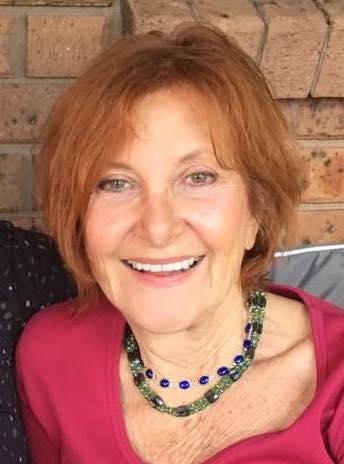
Sadly, until recently children were often excluded from funerals, something we recognise today as harmful.
Christine was only seven when her father died and she will never forget it. But one emotion that loomed large for a long time after was anger – not because Fred had died but because his death was kept a secret from her.
“It wasn’t until my mother died, more than 50 years later, that I was able to somehow work through all that that entailed. As Mum was lowered down into the same grave to be with Dad, I was able to finally say, ‘Well I am now saying goodbye to you too Dad’.”
Today Christine teaches meditation. She has a beautiful mandala painted on the wall of her home by a dear friend. An exotic script encircles it. To my eye it looks decorative but Christine knows the language and the words and they are about love. It expresses a personal philosophy that Christine has used to overcome the hurt she experienced all those years ago.
“My brother, who was ten, was an altar boy and he served at the funeral Mass for Dad. But I was in the school playground. I remember that day looking out and saying to the girls I was playing with, ‘Hey, those people over there look like my relatives.’ They said ‘Come on Christine, let’s go over to the back fence to play over there.’
“Well intentioned people had decided I was too young to cope. So they’d ordered the girls to distract me. I’d been told that Dad went on a holiday, so I thought he’d gone back to New Guinea, where I was born.”
Christine kept waiting for her father to come back from that holiday, feeling bewildered that he’d just left.
“They didn’t trust the resilience of a child. But they did much more harm than good.”
Others tell similar stories, based on a belief that children should be protected from grief – and if truth be known, based also on a belief that young children shouldn’t be allowed to distract in any way from the mourning rituals of the adults.
Adults in their 50s, 60s and 70s have cried as they’ve shared stories about the denial of their grief.
Grief and what it is, is explored in A Good Death: a compassionate and practical guide to prepare for the end of life. To find out more about my book, go to https://good-grief.com.au/a-good-death-book-margaret-rice/
For a book written in response to a mother’s grief over the loss of a child, go to:https://good-grief.com.au/the-grief-kaleidoscope/
Are you stuck on how to explain death to children? The resources at Feel the Magic can help.
Bereavement in children and young peopleby age, by New Zealand’s Kids Health, is a helpful resource to spot the signs of grief in children.
